Overview
Biohacking, also known as human augmentation or human enhancement, is taking over Silicon Valley and gaining acceptance in mainstream culture. The outbreak of coronavirus infection worldwide and the demand for smart devices and drugs are some of the factors driving the popularity and the growth of the market and the biohacking movement.
The whole idea of biohacking is that people feel entitled, they feel the ability to just follow their curiosity – where it should go – and really get to the bottom of something they want to understand.
Ron Shigeta, CSO of the accelerator Indie BIO, for LabioTech
Silicon Valley is known as the startup paradise and home of the world’s brightest engineers, technicians, and developers, attracting thousands of ambitious entrepreneurs each year.
The competitive environment of the Valley motivates individuals to go to unusual lengths to not only succeed but to become the best, no longer restricting themselves to technical formulas but turning their attention to matters of the body.
With the introduction of Soylent, a meal-replacement drink created by Silicon Valley engineer Rob Rhinehart in 2014, biohacking first gained mainstream attention.
Biohackers consider life a never-ending quest to become better, stronger, healthier, and more powerful. Practicing biohacking refers to implementing various techniques and experiments aiming to improve one’s physical and mental well-being by creating an environment that encourages peak performance both internally and externally.
Smart medicines, microchips, brain sensors, magnetic fingerprints, RFID implants, bacterial and yeast strains, smart blood pressure monitors, and health trackers are among the products developed by biohackers to explore and enhance the capabilities of the human body and mind.
The global biohacking market size is expected to reach USD 63 Billion by 2028, at a CAGR of 19% from 2021 to 2028, according to a Market Research Future®study.
DIYbio.org, a support organization for DIY groups, has currently listed 44 biohacking labs in North America, 31 in Europe, and 17 across Asia, South America, and Oceania. Due to fast technological developments in the biotechnology industry, availability of developed infrastructure, and substantial investment in developing different vaccines, North America is projected to account for a significant revenue share in the worldwide biohacking market. According to Research and Markets’ report, Europe held the second-largest revenue share in 2020 and is expected to expand at a steady CAGR from 2021 to 2028. Due to technologically advanced healthcare infrastructure and favorable government initiatives, Asia Pacific is expected to record the fastest CAGR over the same period.
Grails’ team has gathered a list of twenty biohacking companies worth watching in 2021-22.
Namepicks
Thync
Founded in Silicon Valley in 2011, the bioelectronics company develops innovative treatments for autoimmune and psychogenic disorders. Clinically tested and developed by neurologists from the Massachusetts Institute of Technology, Universities of Harvard, and Stanford, Thync’s wearable technology controls and alters the mood and relieves stress. Thync has raised a total of $13 million in three rounds of financing. Their most recent fundraising came in the form of a Series B round in May 2016. The company is operating on the exact brand match domain name Thync.com.
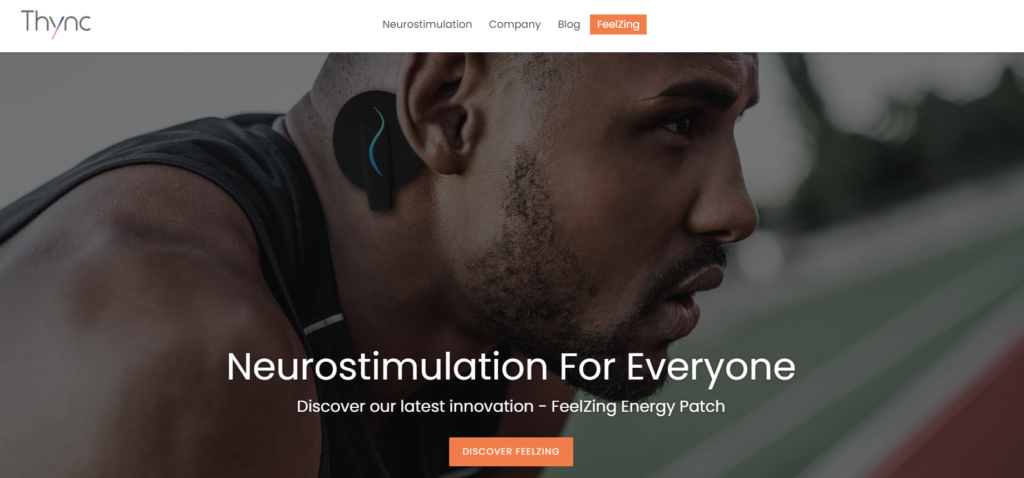
Soylent
Silicon Valley engineer Rob Rhinehart founded Soylent in 2014. Soylent is a pioneer in food technology, producing functional foods with complete nutrition. Its product range is engineered to deliver the vitamins, minerals, lipids, carbs, and protein the body needs – all in handy packaging. Soylent has raised a total of $133.3M in funding over seven rounds, with their latest funding being raised in May 2017 from a Series B round. The company has chosen the exact brand match domain name Soylent.com.
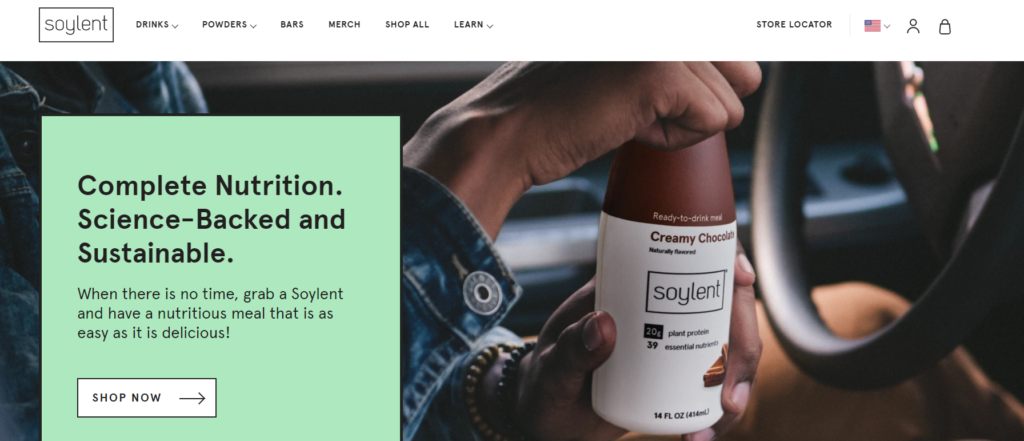
Pavlok
Founded by Maneesh Sethi in 2013, Pavlock manufactures an electronic wristband that helps users create and maintain good habits. The device has a gyroscope, accelerometer, motion sensors, and various other features to analyze human behaviors and respond appropriately in real-time. Pavlok’s latest funding was raised in 2015 from a Non-equity Assistance round, bringing the company’s total raise to $200K over three rounds. Pavlok is operating on the exact match domain name Pavlok.com.
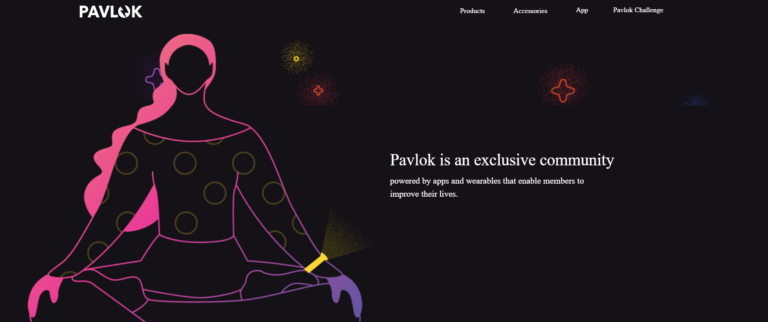
KAATSU Global
KAATSU Global is a US company that develops, manufactures, promotes, sells, and distributes patented blood flow restriction exercise equipment. The company also holds seminars, develops instructional programs for customers, and trains KAATSU certified professionals. Like the above mentioned, KAATSU has also chosen an exact brand match domain name KAATSU.com for its online presence.
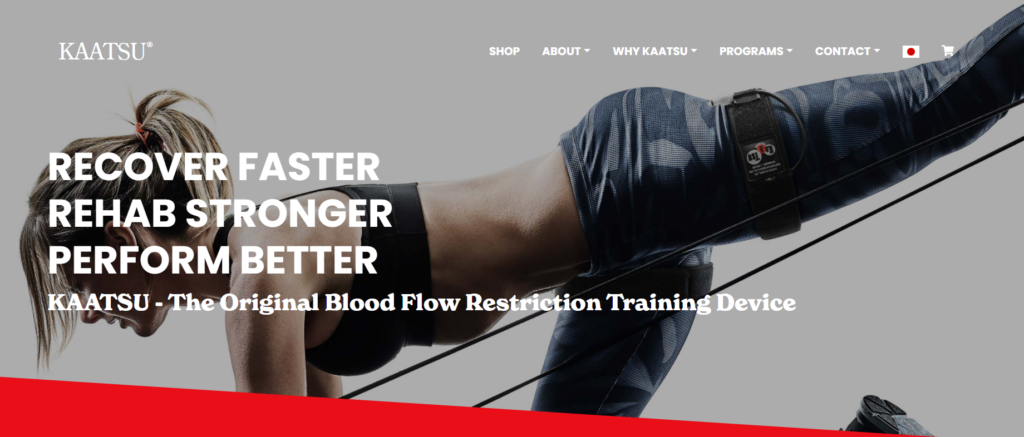
Primal Life Organics
Primal Life Organics offers vegan and gluten-free skincare along with organic-based teeth whitening products with no synthetic fragrances or chemical preservatives. Natural skincare expert and biohacker Trina Felber founded the company in 2011. In 2018 Primal Life Organics was ranked #1011 in Inc. 5000 list with a turnover of over 4.7 million. The company is operating on the exact brand match domain name PrimalLifeOrganics.com.
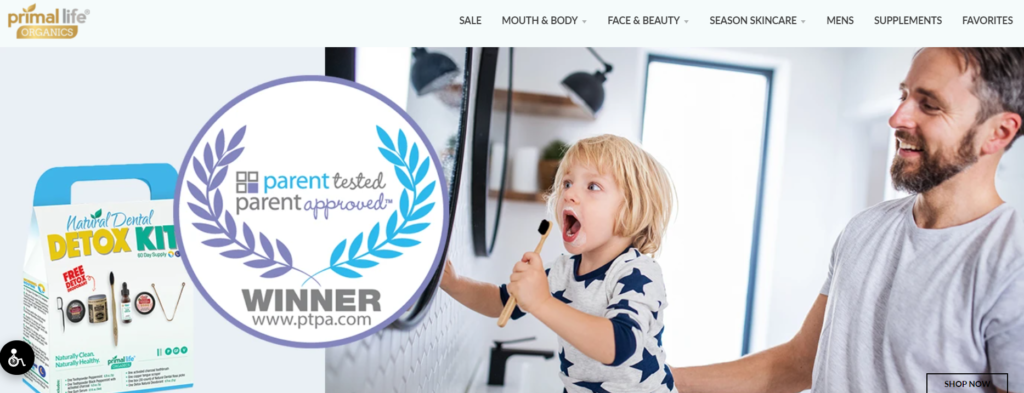
MyDNAPedia
MyDNAPedia is a Finnish company specializing in DNA tests for athletes. The company was founded in 2011 and operates in Finland and throughout Europe. MyDNAPedia’s unique and high-quality DNA test allows users to quickly collect a sample at home and return it to the lab. Afterward, they receive a full report with the results and advice on how to improve their nutrition, sports training, and general health. MyDNAPedia has chosen an exact brand match domain name MyDNAPedia.com.

Highlights
Eighteen biohacking companies on our list have chosen a .com extension domain name, the world’s most recognized web suffix, with over 115 million .com domains registered worldwide.
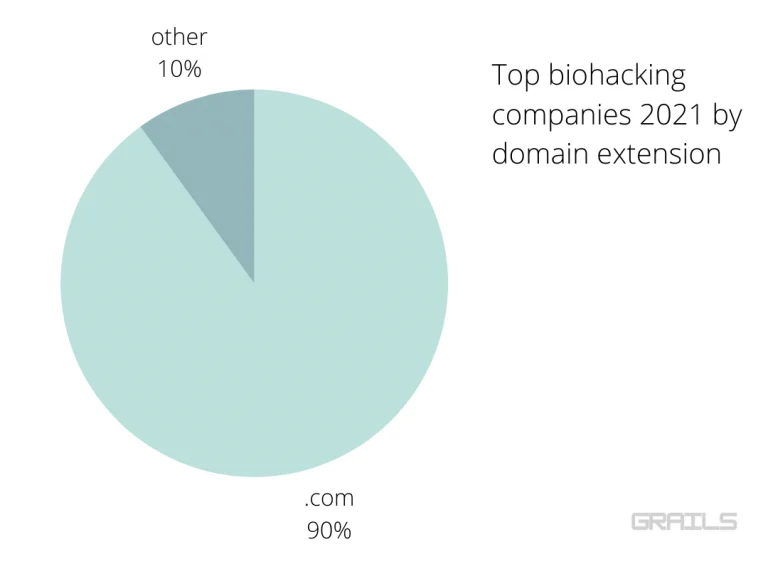
Thirteen companies out of twenty operate on exact brand match domains. In terms of SEO, EBMs are considered excellent for a startup to gather relevant, high-quality traffic and are easier to get social mentions with keywords and targeted anchor text. Two companies operate on .org extension domain names.
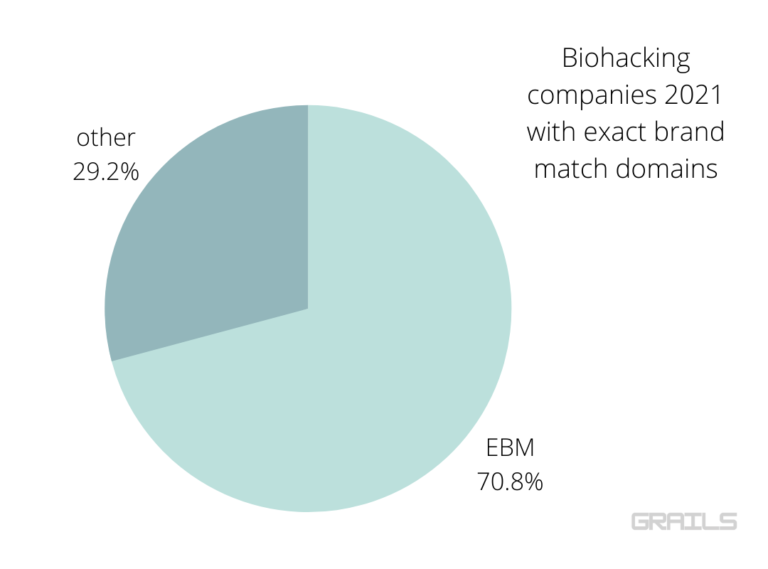
Two companies use a dash in their domains. Adding hyphens is not advised since it adds complexity for consumers who frequently overlook it while typing in a domain name.
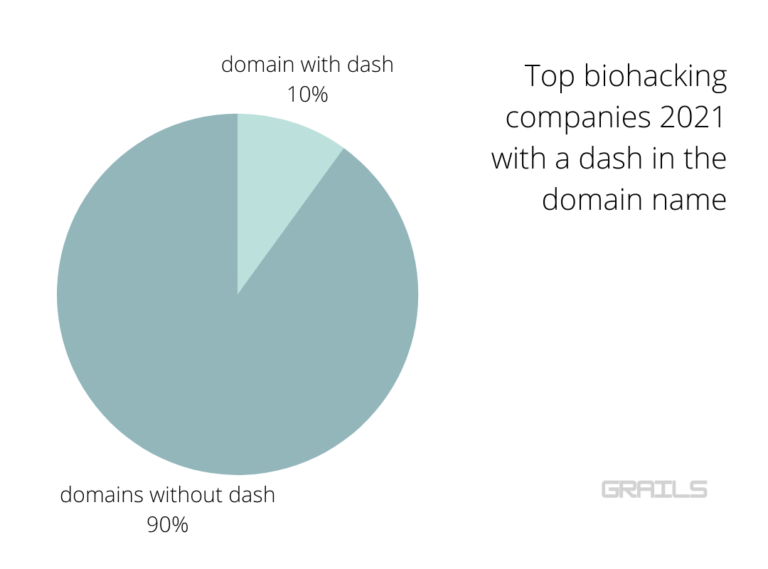
While we make every effort to ensure the data on our site is accurate, complete, and up-to-date, we cannot guarantee its reliability. Our data is provided for informational purposes only and should not be relied upon as legal, financial, or other advice. We strongly recommend that you independently verify any information before relying on it.
How does your brand name match your company vision? What new horizons can a better name open? Get in touch if you feel your brand deserves a better name, we are always happy to help.
Other resources
biohacking branding business Companies domain domain name domain names domains naming startup

Previous Next